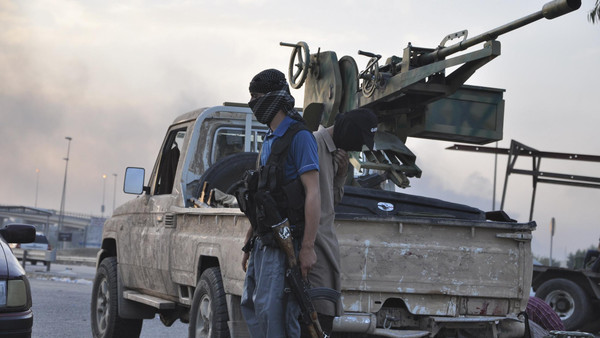
Officials said Obama had made no final decisions and didn’t rule out the possibility that airstrikes ultimately could be used, particularly if a strong target becomes available. But officials said the strikes were not the current focus of the administration’s ongoing discussions about how to respond to the crumbling security situation in Iraq.
The president planned to brief top congressional leaders on the matter at the White House on Wednesday.
Beyond airstrikes, the U.S. also has been weighing the possibility of sending a small contingent of special operations forces to Iraq to help train that country’s security forces. Officials also have been looking at ways to boost the intelligence available to Iraqi forces.
More broadly, the Obama administration is also pressing for Iraqi Prime Minister Nouri al-Maliki to take steps to make his Shiite-dominated government more inclusive. Obama said last week that any short-term U.S. military actions in Iraq would not be successful unless they were accompanied by political changes by the government in Baghdad.
Despite those calls, there were ominous signs Tuesday of open warfare between Shiites and Sunnis, the two main Muslim sects. Nearly four dozen Sunni detainees were gunned down at a jail north of Baghdad, a car bomb struck a Shiite neighborhood of the capital, and four young Sunnis were found slain.
During the United States’ eight-year presence in Iraq, American forces acted as a buffer between the two Islamic sects, albeit with limited success. But U.S. forces fully withdrew at the end of 2011 when Washington and Baghdad could not reach an agreement to extend the American military presence there.
But the Obama administration has been forced to rethink its relationship with Iraq after the al-Qaeda inspired group Islamic State of Iraq and the Levant quickly took control of key Iraqi cities last week. Obama has already notified Congress that he is sending nearly 300 forces in and around Iraq to secure the U.S. Embassy in Baghdad and additional American assets.








